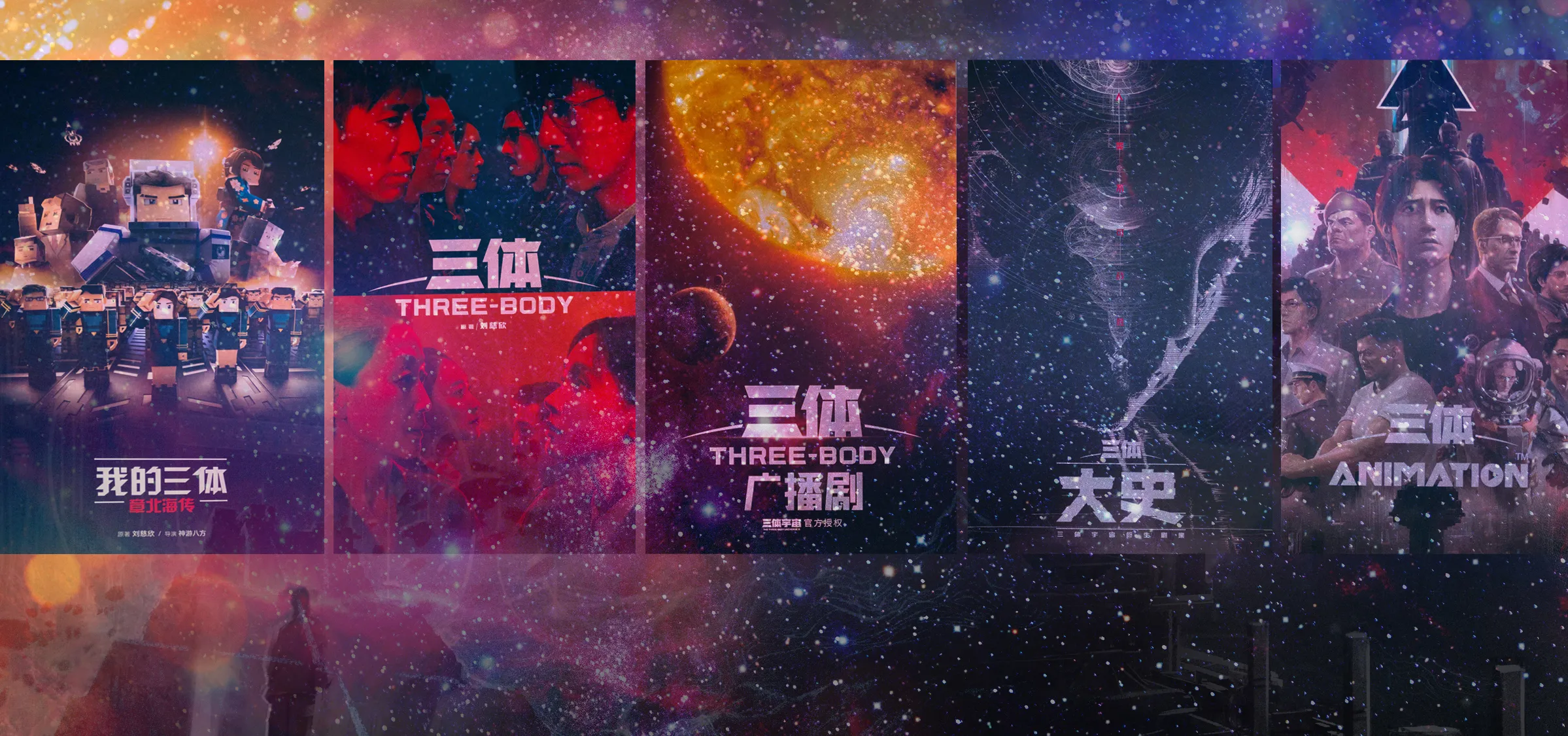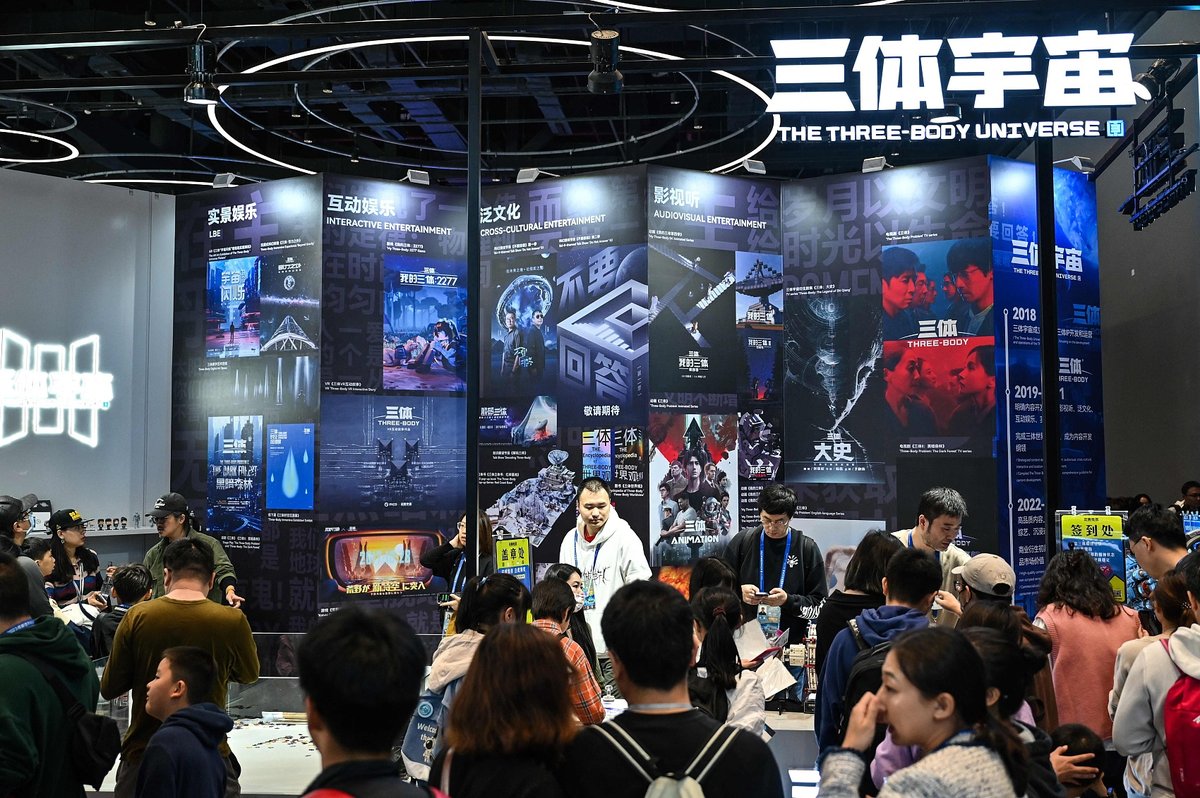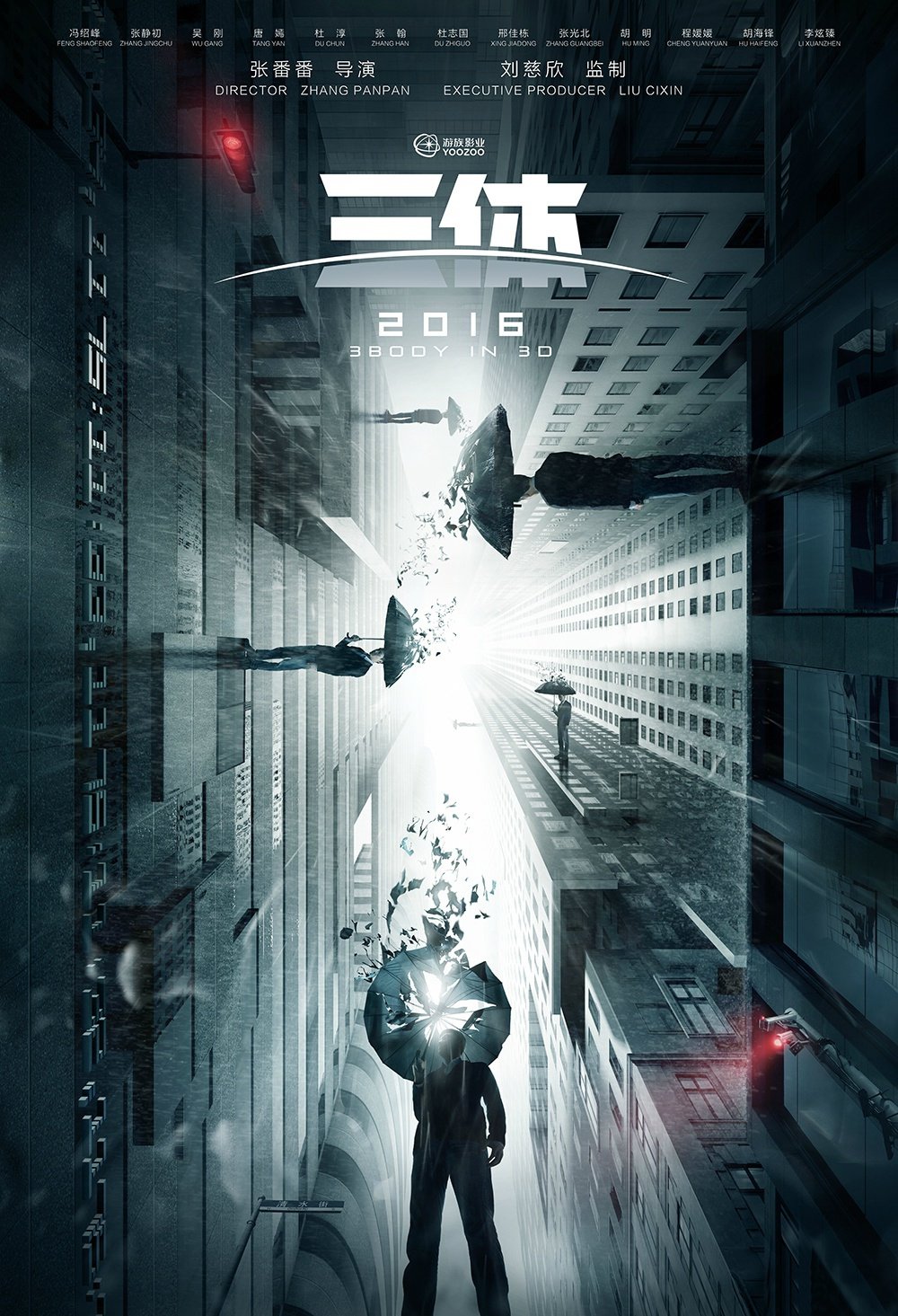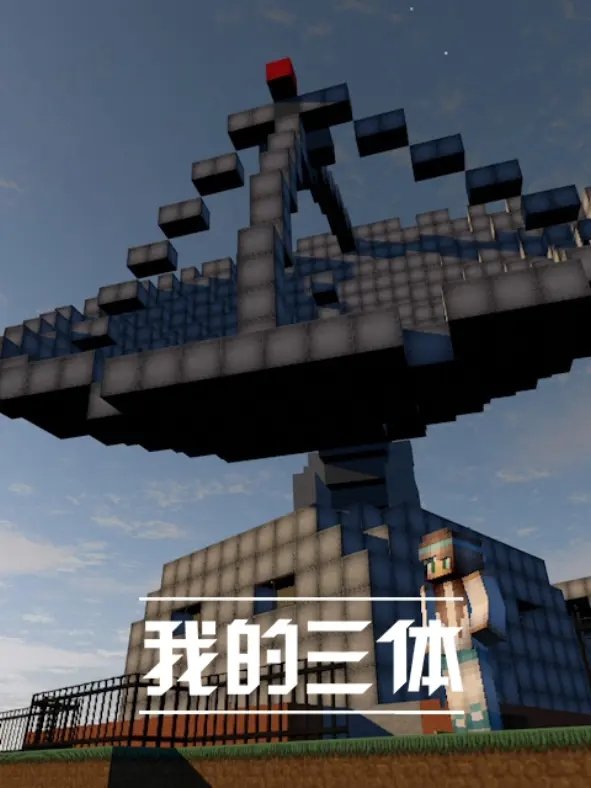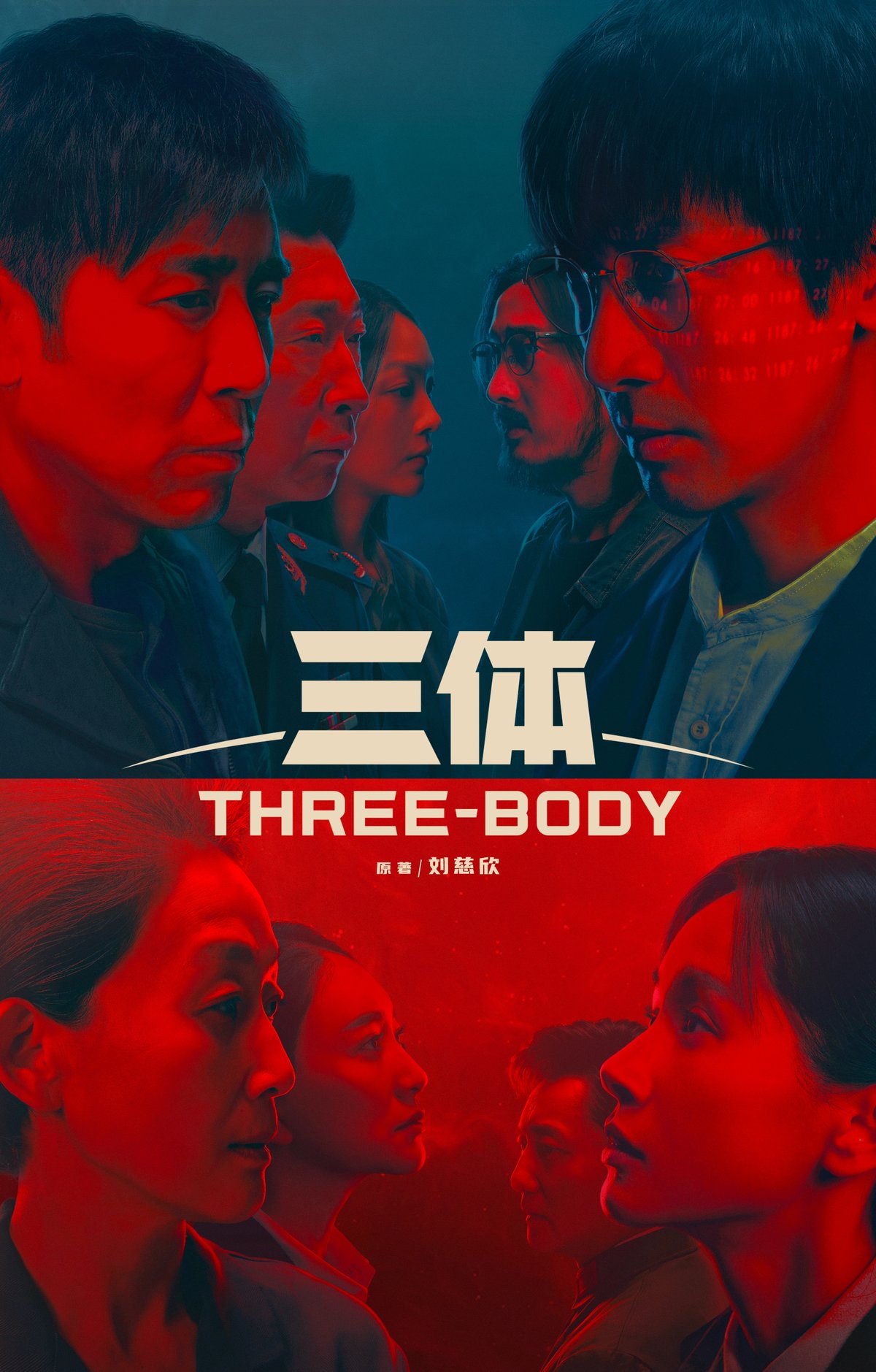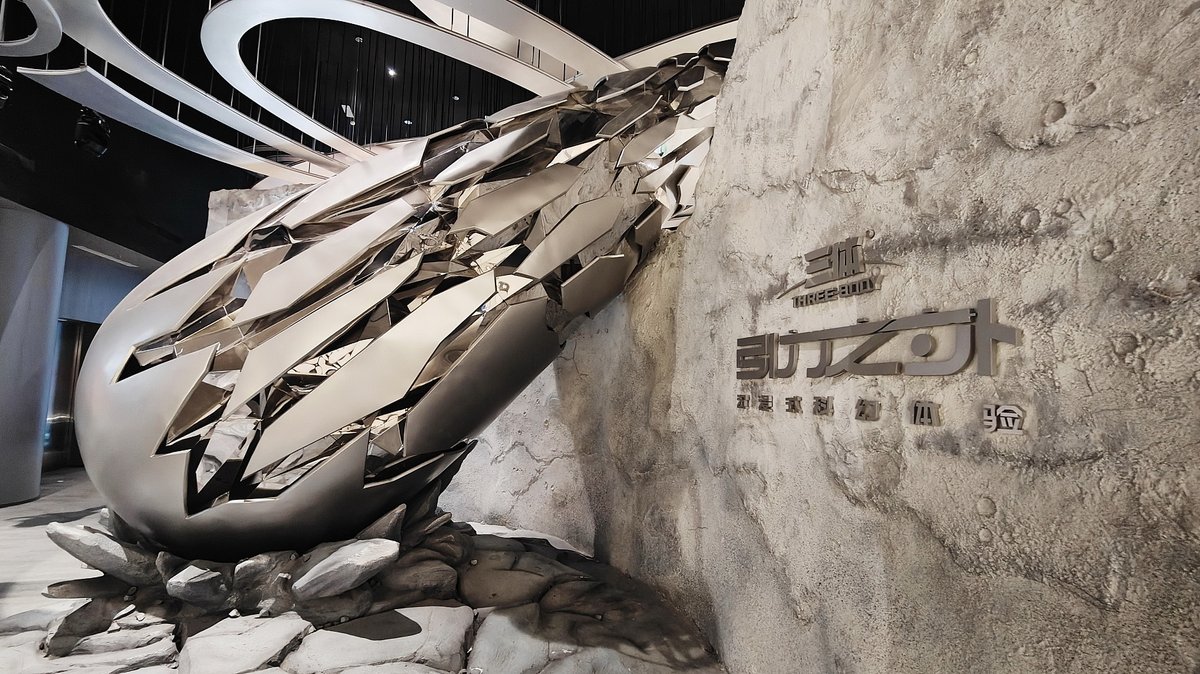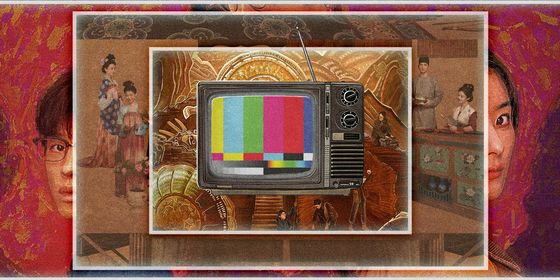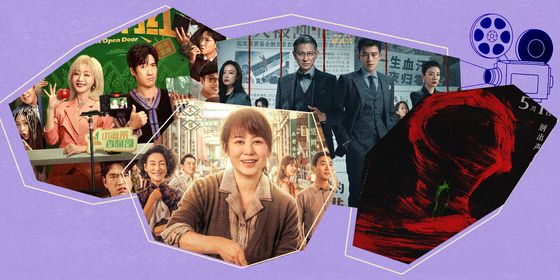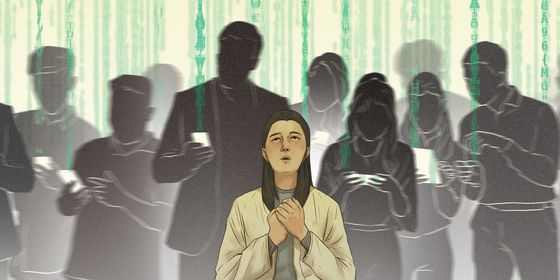Three-Body’s epic scale and its fiercely guarded fan base present challenges to adaptations
When technologically advanced aliens threaten to invade Earth in Liu Cixin’s acclaimed Three-Body sci-fi trilogy, humankind starts to tear itself apart long before the ETs arrive. The world faces an unwinnable war, with the aliens sabotaging scientific progress and monitoring all communications on Earth. The struggle is a bit like finding a winning formula for adapting Liu’s sweeping trilogy, officially known as Remembrance of Earth’s Past trilogy, for screen and theater.
Netflix’s latest adaptation of the first book, the Hugo award-winning The Three-Body Problem, left many fans unsatisfied. With a reported budget of 160 million US dollars, the eight-episode series was the most-watched show on the platform for three weeks after it premiered on March 21. However, critics questioned its flat character building, argued that it missed the deeper point of the original work, or complained about the race, gender, and location changes of characters from the original.
Previous adaptations, which include TV dramas, two animated series, a pop-up book, an immersive interactive play, two stage plays, various exhibitions, and a film that was never released, had mixed results. Many struggled to capture the magic of Liu’s epic and wildly popular tale, and have floundered against the books’ epic scope. The trilogy narrates events spanning from the 15th century to the year 18,906,416 and beyond, with over 100 original characters of different nationalities and races (including aliens)—the series can seem more like an ancient odyssey than a modern sci-fi adventure.
Liu, a hydraulic engineer by training, also incorporates many cerebral scientific concepts, theories, and thought experiments in place of conventional character development. The many imagined future technologies and social formations also pose challenges for adaptations aimed at a general audience.
Three-Body’s popularity and demanding fanbase also make any attempts to adapt it fraught with danger. As of 2023, the Three-Body trilogy is the bestselling speculative fiction work of all time in China. It has been translated into 31 languages and has sold over 30 million copies worldwide. According to the series’s rightsholders, the books’ domestic fan base covers multiple generations adding up to over 260 million people, with almost 40 percent of China’s population having at least heard of the books. Concepts and phrases that originated in the novels have entered common parlance. “Dimensionality reduction strike (降维打击),” for example, is used to describe those with advanced technology competing in a field dominated by low-tech groups, overwhelming them with their superior capabilities, just as Liu’s advanced aliens take on humans in his books.
The first disastrous attempts at adapting the trilogy came long before Three-Body became a household name. In 2009, six years before the first book won the Hugo Award, a couple, scriptwriter Song Chunyu and director Zhang Panpan, bought the film and TV adaptation rights from Liu for an alleged bargain price. Some reports put the figure at 100,000 yuan, though Liu has refused to confirm this.
Song and Zhang had little filmmaking experience but insisted on playing leading roles in an ambitious six-part film saga bankrolled by Yoozoo, a game company that partnered with them. The first film, which had a budget of 200 million yuan, was filmed in just five months in 2015. The results were dreadful. Rumors circulated that the footage Zhang shot was unusable, while the plot proceeded like a PowerPoint presentation. The film’s release was postponed indefinitely.
While the book rose to international fame, the film adaptation effort scarred some Chinese fans, contributing to Three-Body’s years-long reputation as unfilmable. Whenever news of adaptations appeared online, fans of the books would comment “Do not film! Do not film! Do not film!” mimicking a warning in the book sent by a peace-loving alien to Earth saying: “Do not answer! Do not answer! Do not answer!”
Yoozoo’s founder, Lin Qi, eventually bought the rights from Song and Zhang for 120 million yuan in 2018 and founded the company The Three-Body Universe in Shanghai to manage them, with Liu as a minor shareholder. Since then, the company and its partners have been responsible for a host of adaptations including TV shows, books, plays, and even art exhibitions. Lin hoped to turn the Three-Body trilogy into China’s Marvel or Star Wars.
Some have been successful. My Three-Body, an animated series started by a group of fans in 2014 and originally recorded in the video game Minecraft, joined The Three-Body Universe in 2016 and has a rating of 9.4 out of 10 on the review platform Douban. But a second animated Three-Body series that premiered on Bilibili in late 2022 (gaining over 100 million views on its first day) was slammed by viewers for its messy storyline, flat characters, and poor visuals.
The Three-Body Universe faced turmoil off-screen too. In 2020, in a bizarre twist that could have come from the pages of Liu’s novels, Lin was poisoned by Xu Yao, The Three-Body Universe’s CEO. Lin’s death led to temporary chaos in the company, but several products emerged soon after. The company painstakingly compiled an official encyclopedia of the Three-Body world, detailing its characters, factions, and many concepts and technologies, in an attempt to create official guidelines for future adaptations. The three-volume encyclopedia was released in 2022.
However, that did little to prevent directors and writers from taking big liberties with Three-Body scripts. Much criticism of Netflix’s adaptation came from its various diversions to the original work to appeal to a wider audience. A Chinese adaptation backed by Tencent Video, on the other hand, targeted committed fans by including character depiction and dialogue practically lifted right off the page.
“It’s hard to take different layers of the audience into consideration,” explained the Tencent series’ producer Bai Yicong during the 2023 Chengdu World Science Fiction Convention. “We prioritized readers of the original work, and tried to add some explanations for non-book fans,” Bai added. After seven years in production, the first season of 30 episodes premiered in early 2023 and has gained an impressive rating of 8.7 out of 10 on Douban.
However, Tencent’s slow-paced, predictable narrative, loaded with complicated details, has also hampered its appeal to casual viewers. Many reviewers said they struggled to grasp the show’s major theme and gave up after the first few episodes. The visuals also lag behind Netflix’s version, probably because Tencent’s production budget was less than one-third of Netflix’s.
While some purist fans are hostile to any changes to the books, Liu has expressed openness to adaptions and remained remarkably supportive of nearly all adaptations, despite working as a writer, producer, or consultant on most of them. “The key is to select the spirit and essence of the original work according to your opinion and stay faithful to that,” Liu explained at a Tencent press conference in 2015. He has even warned fans not to have unrealistic high expectations for the franchise.
Small-scale, off-screen adaptations have taken even more creative approaches to the story. “Beyond Gravity,” an immersive Three-Body play based at Shanghai’s AI Plaza, features actors interacting with the audience. The theater is designed like a spaceship with space for 100 people. Since its opening in 2023, the show has received over 30,000 viewers.
Lu Changting, the production’s creative director, has worked hard to adapt Liu’s work into something that has wide appeal but avoids straying too far from the original. “The Three-Body trilogy isn’t well-suited for adaptation into immersive drama,” she tells TWOC. “Its epic quality is often best appreciated from a distance. Immersive drama requires you to enter and become a part of that world, which can sometimes disrupt its grandiose essence.”
Lu’s solution was to use a short but critical part of the trilogy’s final book, a scene that takes part in a spaceship named Gravity, for their play. In the theater, the actors and audience become crew members and face a series of dramatic events, including fleeing from Earth and a vote to determine the fate of humanity. “Beyond Gravity” strives to appeal to those unfamiliar with the book by boiling down the Three Body world into a few simple principles, providing plot and visual clues to explain the relationship between humankind and the aliens and the idea of deterrence between them. “I hope someone who has never read The Three-Body Problem can still enjoy the experience. After ‘Beyond Gravity,’ they might even be inspired to read the original work,” says Lu.
Lu believes the clearest marker of success is a growing fan culture around “Beyond Gravity” on the social media platform Xiaohongshu. “I believe that if a work can inspire people to create fan art and fiction, it demonstrates that its world and characters possess significant potential and have left room for imagination,” she says. For many fans, this is also the appeal of Liu Cixin’s Three-Body world. Expect more adaptions (some good, some bad) soon.
Three-Body Conundrum: Why Liu Cixin’s Trilogy Defies Adaptation is a story from our issue, “Viral Attractions.” To read the entire issue, become a subscriber and receive the full magazine.





